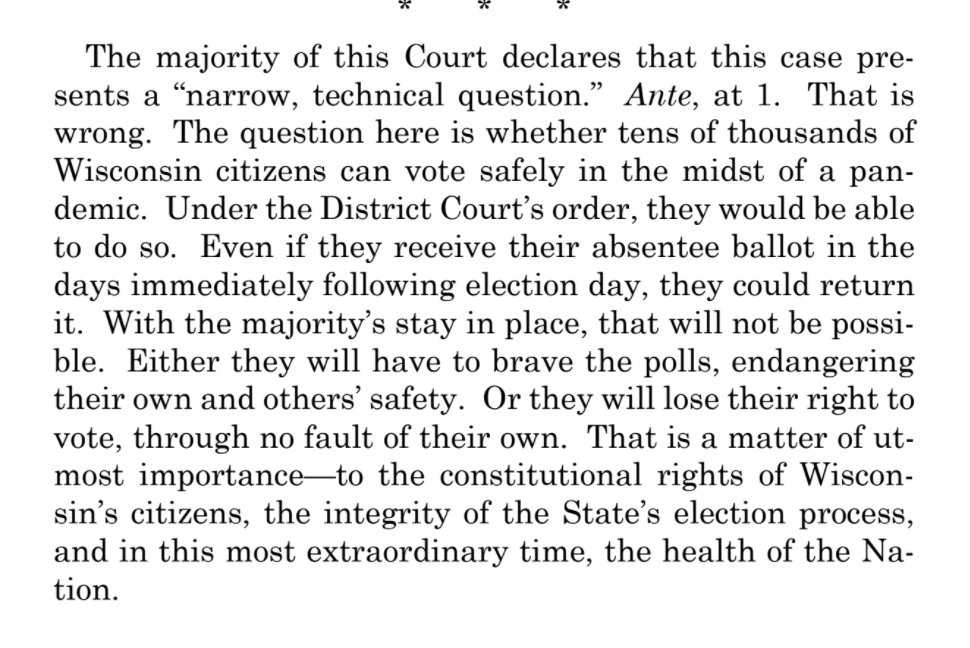A: not to target the president
Roberts: theory goes much farther than resisting subpoena though!
Roberts: why is there distraction here, if there wasn't in Clinton v. Jones?
[doesn't say what the differences are or why they matter]
A: Adams, Jefferson - subpoenas interfere w pres responsibilities
A: different issues, yes.
A: president is no ordinary citizen - he is a branch of government
A: by the time you review all those requests, you are burdened.
[of course, it's only burdensome bc Trump is so adamant about keeping his records secret.]
Sekulow really going for an expansive vision of the presidency.
So why not let courts review cases like these?
[he apparently has NO concerns about presidents being above the law]
Gorsuch not having it.
A: what's to stop them from asking for deposition here?
A: loss of liberty vs. monetary fines
[of course loss of liberty would only take place after pres leaves office]
Francisco: Sekulow makes strong arg on immunity issue, but Court need not address it
A: state court poses more of a threat, esp in places like NY where there are judicial elections and local prejudice. so need federal court available to evaluate
Also: no case more dramatic than Nixon tapes. Devastating impact on the president. But yet that was ok. So I really don't get it.
A: parallel interests. Article II is meant to prevent pres from being unduly burdened.
A: ordinary grand-jury rules aren't enough. judgment must be made by federal, not state courts. partisan elections in state courts. so use the 50-y-o standard.
A: all exec power resides in a single person, so others can't "hobble or debilitate" him; 2300 prosecutors hitting presidents with ability to effectively carry out his dutieis
Roberts: what standard should apply and why more rigorous than House-WH?
A: same as federal courts; grand jury judge supervises; clear that president can always go to fed court and raise Art II concerns
A: yes.
A: the parade of horribles has no empirical basis. Rejected in Nixon and Clinton cases. No basis to think that these 2300 would even have jurisdiction...
A: no knowledge of that, sorry!
The CJ called on Sotomayor and Alito plowed ahead.
A: problem with DOJ language and application -- you don't need it while in office? no, we do. fading of memories, loss of docs, etc.
A: no bad faith in our subpoena.
Kagan: Sekulow says you've shown bad faith by lifting language of House subpoenas
A: pretty much, yes, at least in terms of DOJ's position.
A: yes, that too. but it's a matter of degree.
A: potentially thousands or many more private litigants not bound in way prosecutors are
Nixon and Clinton: sep of powers. Here: balancing police powers of states vs. Supremacy Clause.
Roberts: that was civil.
Dunne: is criminal really more demeaning? Clinton involved sexual harassment.
Dunne: hypothetically, look at Clinton analysis: appear and testify at trial or asked to show up for depositions. Those are burdens.
A: yes, it did.
A: subpoena implicates potential burdens, but doesn't necessarily pose burdens to presidential duties.
A: not so much, 10th am gives state prosecutors license to prosecute. And a lot is *only* prosecutable by the states.






